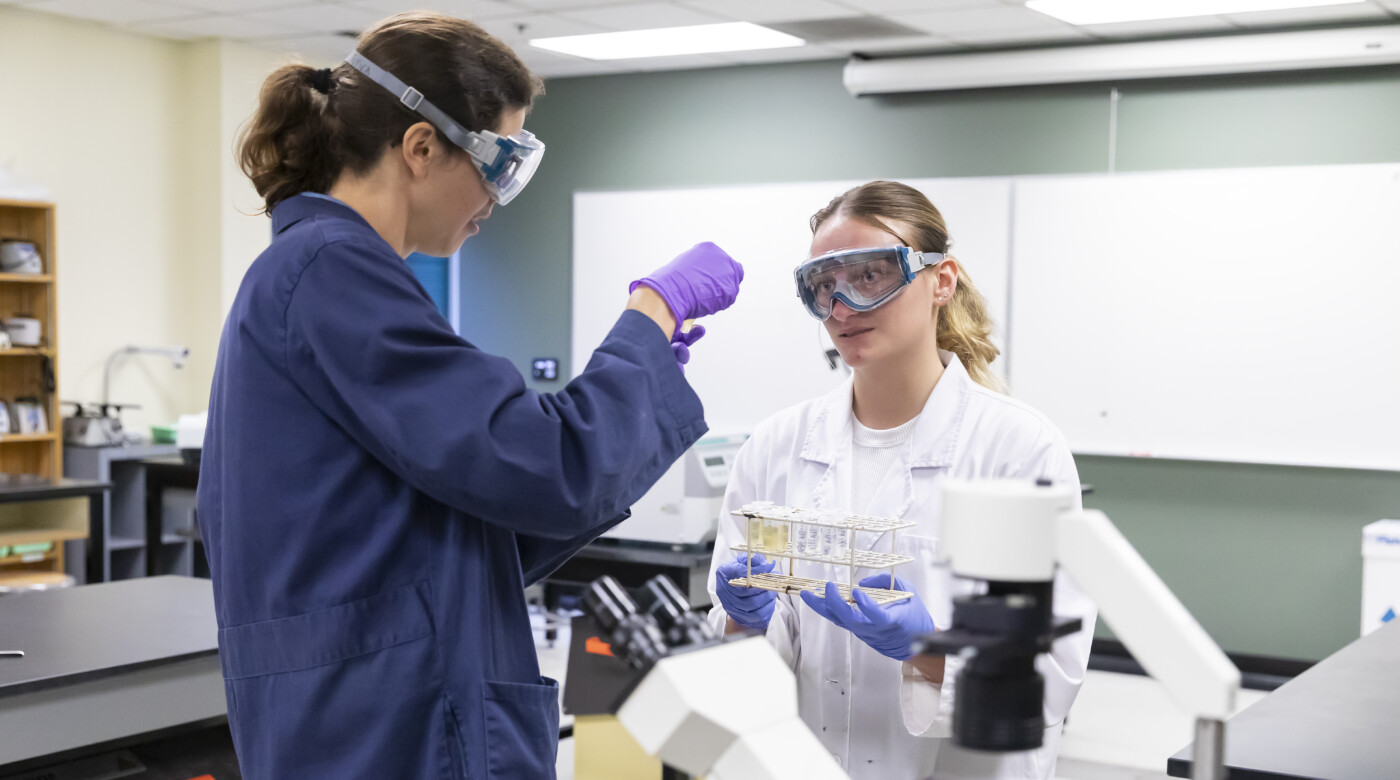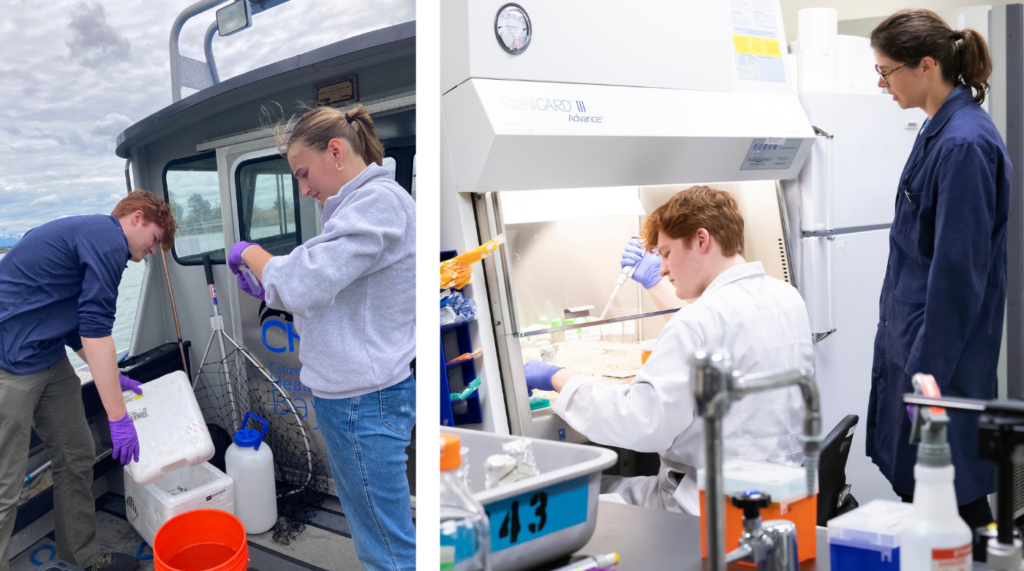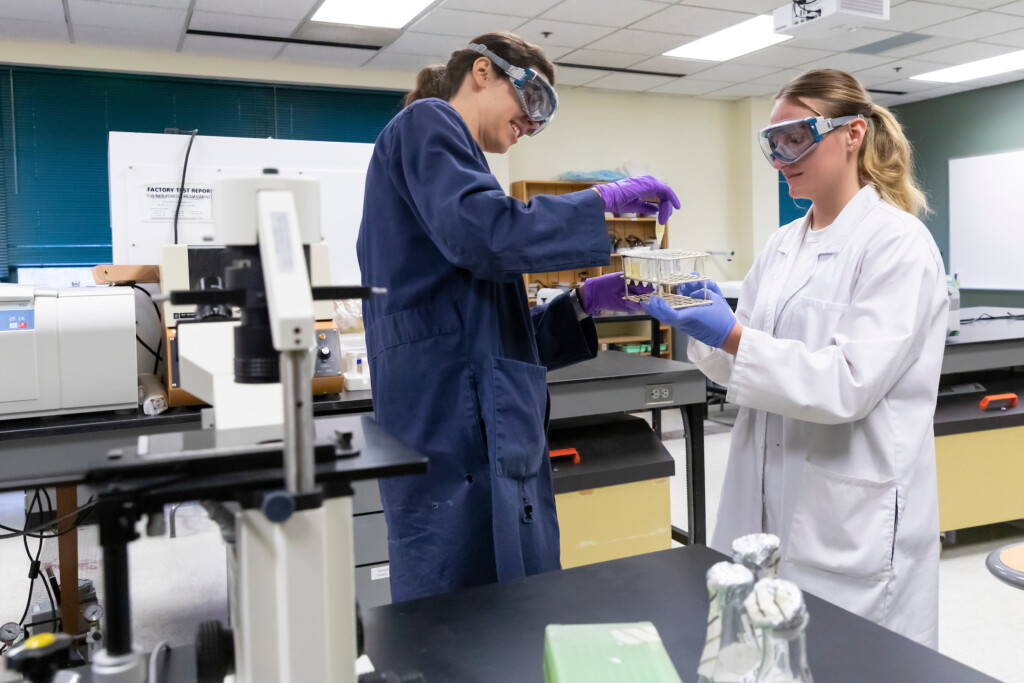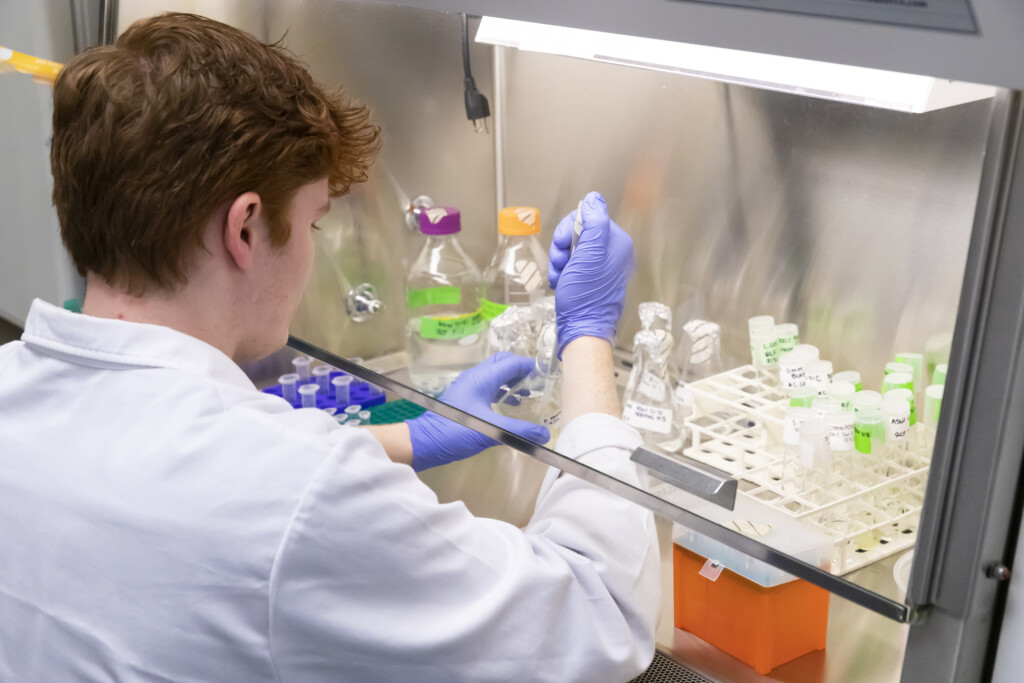Lydia Flaspohler ’25 and Ryan Fisher ’24 dive into the secrets of marine microorganisms

Image: Students conduct summer research under the supervision of assistant professor Angie Boysen, Tuesday, July 25, 2023, in the Rieke Science Center at PLU. (PLU Photo / Sy Bean)
By MacKenzie Hines
PLU Marketing and Communications
Have you ever wondered how the ocean’s tiniest inhabitants play a significant role in shaping our world? Marine microorganisms, minuscule life forms, wield a vital influence over our planet’s climate. They manage crucial components like carbon and oxygen within the vast oceans and the atmosphere.
Over the summer, Professor Angie Boysen and her dedicated team, Lydia Flaspohler ’25, a biology major, and Ryan Fisher ’24, a biology major and environmental studies minor, embarked on a mission to unravel the secrets of these microorganisms.
Professor Boysen, Flaspohler and Fisher aimed to understand the compounds these creatures produce and release, the timing of these activities, and the underlying reasons driving such behavior. It is similar to solving a complex puzzle that promises deeper insights into the enigmas of our oceans.
Flaspohler and Fisher collected water samples to identify the array of compounds present and their fluctuations over time. They also undertook hands-on experiments cultivating phytoplankton – microscopic plant-like organisms – within the lab. Their mission was twofold: they grew and gathered samples and expertly interpreted the amassed data.
This research project was part of the Natural Sciences Summer Undergraduate Research Program (NSSURP). NSSURP allows student researchers to work directly with PLU faculty mentors to experience a learning dimension rarely accessible from the academic-year textbook and laboratory assignments. Research projects reflect the natural sciences fields of biology, chemistry, computer science, environmental studies, geosciences, mathematics, physics, and psychology.
Exploring the when, what, and why of labile metabolite production and excretion by marine microorganisms

Lydia Flaspohler ’25
Biology major
“One of the most valuable lessons I learned this summer from participating in the NSSURP research program was that failure is not only expected, it is a critical part of the research experience,” reflected Flaspohler.
“I often think there is this narrative that scientific research is this streamlined process where every experiment conducted yields either clearly positive or clearly negative results, but that is not usually the norm. Experiments often don’t go as planned and have to be redesigned or scrapped entirely, or the results generated are inconclusive or mixed, and it is difficult to make any conclusion.”
“In these times, it is very easy to feel overwhelmed and want to give up on the project completely. Still, failure is an incredibly valuable experience in the scientific field that teaches you just as much, if not more, than success. Of course, this is a difficult idea to accept as no one likes to fail, but the reality is that people make science, and people make mistakes, which is ok,” concluded Flaspohler.


Ryan Fisher ’24
Biology major and environmental studies minor
“This summer has been such a great experience in research,” said Fisher. “In our lab, I got to practice a lot of different chemistry and biology-based methods to understand marine microbes on a molecular level.”
“One of my absolute favorite parts of research has been the actual process of culturing our microorganisms. From a small 1 mL portion of a growing culture, we could grow dense cultures in only a matter of weeks!”
“Additionally, using methods like optical density scanning allowed us to visualize how our cultures grew over time, which was amazing to watch,” continued Fisher.



Social Media